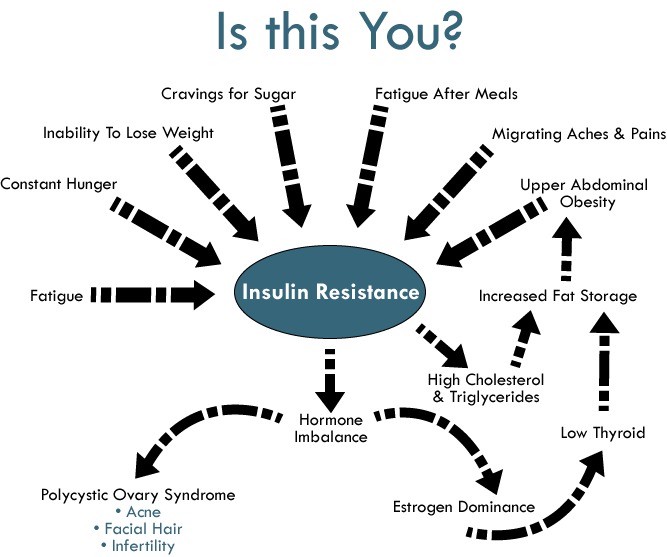Polycystic Ovary Syndrome (PCOS) & Acupuncture
PCOS is primarily a condition of female hormone imbalance. This imbalance may present as symptoms such as irregular menstruation, blood sugar irregularity, acne, facial hair, and infertility. Over half of PCOS cases occur in overweight women so dietary factors should always be considered.
 Polycystic Ovary Syndrome (PCOS) Treatment:
Polycystic Ovary Syndrome (PCOS) Treatment:
PCOS is well-addressed with acupuncture treatment and in some cases should be done in conjunction with dietary changes. In this regard, acupuncture has the potential to restore hormonal balance and improve blood flow to the ovaries and uterine lining. Estrogen and progesterone are the main hormones disrupted in PCOS, so these signaling chemicals need to be put back into harmony through acupuncture treatment. In addition, blood flow is especially important as it carries hormones, electrolytes, oxygen and nutrients to the ovaries and uterus. Blood also removes toxins, debris or dead cells to be eliminated. As such acupuncture stimulates an increase in the blood flow to tissues and can modify hormone levels when applied properly.
In order to get the best possible outcome, dietary recommendations may be recommended while undergoing acupuncture treatment. Dietary factors can play a big role in reversing and preventing PCOS. Some studies indicate that PCOS is caused by insulin resistance and/or endocrine dysfunction. Insulin resistance can be improved through diet and lifestyle changes rather rapidly. Some experts also believe that high levels of insulin can cause increased androgen production by the ovaries.
The cause of polycystic ovarian syndrome is still unknown. If a close female family member has it, you might have a higher chance of having it, too. There does seem to be a link between insulin resistance and PCOS. Insulin is a hormone that our pancreas secretes to help us metabolize sugar. When someone is insulin resistant they do not use the insulin as efficiently and the pancreas has to secrete more insulin to control the blood sugar causing an excess of insulin. It is believed that one possible cause of PCOS is that the extra insulin causes the ovaries to produce more male hormones (known as androgens). This is why symptoms can include excess facial hair and acne. Also one of the drugs,used to treat PCOS, Metformin, is a drug for type 2 diabetes that lowers insulin levels.
From the Western Medical perspective, there are many treatment options for PCOS. What type of treatment depends on the health concerns of that patient. Options include a variety of medications. Often birth control pills are prescribed to regulate the hormones and reduce androgen levels. As I mentioned above, Metformin is another choice because it lowers insulin levels and this can lead to a more regular cycle and ovulation. If you are trying to get pregnant, then Clomid is a common drug given to help ovulation. Surgery is another option, when other treatments have failed, and it is usually done laparoscopically.
Lifestyle choices can also make a difference. Eating a low carbohydrate diet, exercising and keeping your weight in check all help. Obesity increases insulin resistance as does eating a diet high in fat and simple carbohydrates.
Chinese Medicine is a highly effective treatment for Polycystic Ovarian Syndrome. Both acupuncture and herbs can help regulate your cycle and alleviate many of the other unpleasant symptoms. Traditional Chinese Medicine is also very good for improving fertility if PCOS is making getting pregnant more difficult. Treatment plans are unique to the patient, and it usually takes three to six months of regular treatment to obtain optimal results. I find the best outcomes occur when a woman uses both acupuncture and Chinese Herbal Medicine together, though some patients prefer to do just one or the other. Once your period becomes more regular, I recommend the patient continue with herbs and get acupuncture once a month to maintain her cycle – especially if she is trying to conceive.
In March 2014, researchers at the Institute of Neuroscience and Physiology in Sweden published the results of a study in the American Journal of Physiology. This study followed 32 women with PCOS, randomly chosen to receive either acupuncture or physical therapy (PT). Participants were treated 2 times a week for 10-12 weeks. Scientists found the acupuncture test subjects had significantly reduced ovarian and adrenal steroid blood levels. During the study, hormone levels of participants receving acupuncture returned to normal with no effect on the luteinizing hormone. This research also concluded that repeated acupuncture treatments resulted in a higher ovulation frequency and was far more effective than physical therapy. In summary, this and other studies provide more evidence that acupuncture helps control PCOS symptoms and can act to regulate the endocrine system.
Get started with a consultation today:
